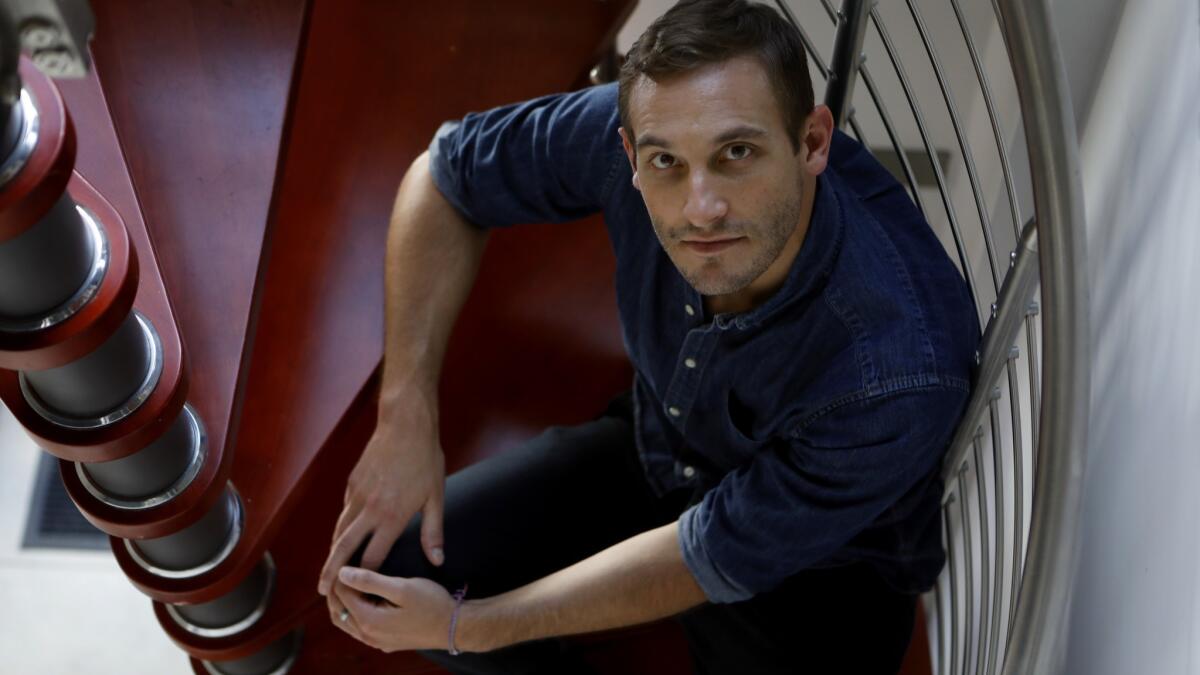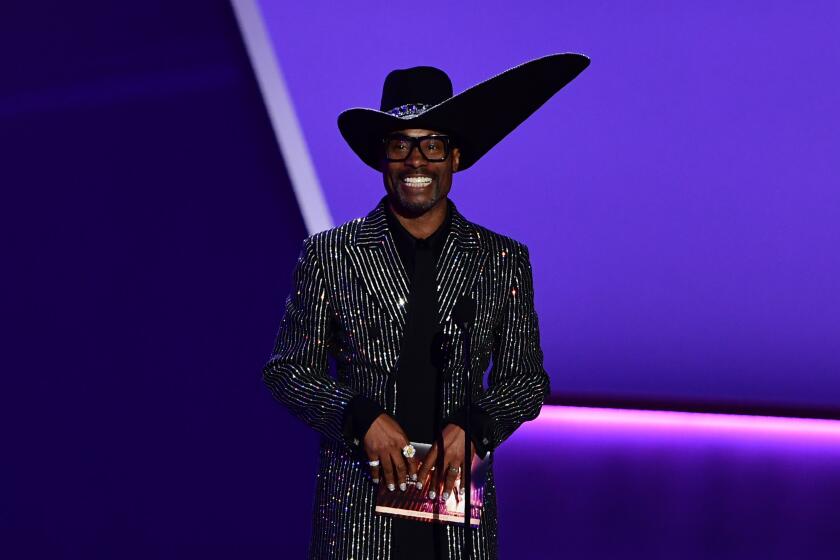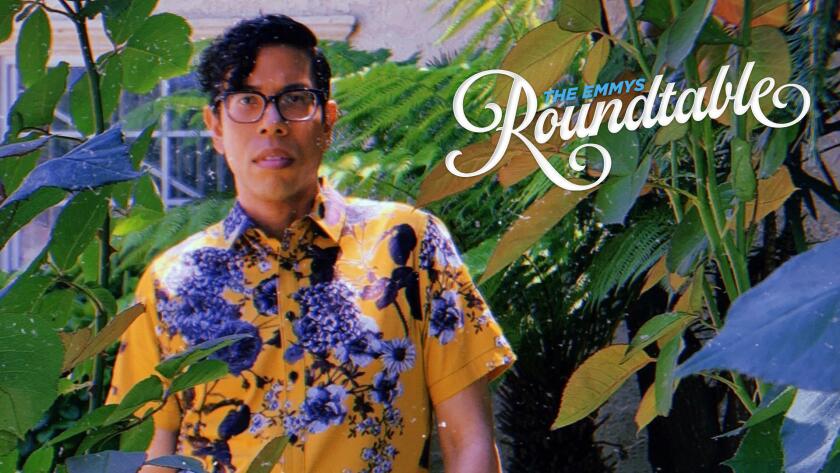‘Visible: Out on Television’ stands as a celebration, reminder the work is not done

- Share via
Long before Netflix’s “Tiger King” began tracking its cast of colorful characters or Michael Jordan finally gave the go-ahead for ESPN’s “The Last Dance,” “Visible: Out on Television” was scouring for talent to help chronicle the history of LGBTQ people on the small screen.
Producers David Bender, David Permut, Wilson Cruz and Wanda Sykes worked on the project for almost a decade until fledgling streamer Apple TV+ showed interest in backing it a few years ago. When acclaimed filmmaker Ryan White (“The Case Against 8”) came on board to direct, the series finally began to come together.
Structured around sit-down interviews from notable figures such as Ellen DeGeneres, Oprah Winfrey, Billy Crystal, Rachel Maddow, Don Lemon, Michael Douglas, Billie Jean King, Warren Littlefield, Ryan Phillippe, Raven-Symoné, Greg Berlanti and Norman Lear, “Visible” weaves the often-improbable history of gay, lesbian and trans representation on American television. The Historic revelations are at times both disheartening and inspiring. Along with key figures in music, film and sports, TV eventually opened doors and led to greater acceptance for LGBTQ people in society after 50 years of programming.
“I inherited 20-something interviews. I think I did 70-something on my own,” White notes. “Then we were able to hire a huge team because Apple gave us the resources to comb through, I don’t know, tens of thousands of hours of television footage.”

And, yes, White was shocked by the talent he was able to agree to participate. Caitlyn Jenner was his first “yes,” and from there the floodgates began to open.
“If you could sit down and interview someone, Ellen and Oprah would be the most intimidating. And Anderson [Cooper], because they’re all so famous for interviewing people,” White says. “And the only reason we have that lineup — that is not a testament to me. It’s Wanda Sykes and Wilson Cruz because they’re both so well connected in the industry.”
Few of those approached declined, but some schedules simply didn’t coalesce. White laments, “I would have loved to interview RuPaul. We could never figure it out.”
Billy Porter of FX’s “Pose” is the first openly gay black man to win the Emmy for lead actor in a drama series.
The series was originally greenlighted for four installments. However, in the final months of editing White says it was clear he’d be forced to make major cuts that would hurt the project without more airtime. Luckily, Apple gave the go-ahead for an additional episode.
“I knew I wanted to do it semi-chronologically,” White notes. “Some people said, ‘Oh, that’ll alienate young people if you begin in the black-and-white era.’ And I think it’s been proven by the response to this series — my only measurement is young people on Twitter — is the stuff from the ‘50s and ‘60s is what blows [people’s] mind and had to be the foundation of the beginning of the story.”
Moreover, as White and his team began interviewing more people, unexpected story lines began to take shape. The 38-year-old experienced his own formative television years in the late ‘80s and ‘90s. Even so, he was caught off guard by some programs that came up over and over again from both older and younger subjects. One of those surprises was the 1970s series “Three’s Company,” a multicamera sitcom that featured John Ritter as a California bachelor pretending to be gay so his landlord would let him be roommates with two single women. Ritter played his character as over-the-top and flamboyant when necessary, but for many young gay men it was the first time they saw themselves represented on television in any context.
“I remember Jesse Tyler Ferguson, his first reaction to that question was, ‘Oh, that was John Ritter on ‘Three’s Company,’” White says. “Because he was a kid watching that show with his parents, and he’s working out in real time that it was an inauthentic representation. Even though he was playing gay, with quotations, he wasn’t a gay man.”
- Share via
White continues, “That speaks to how damaging the absence of representation [is]. That people will look for themselves even in a caricature. I think we still see that now. When people aren’t seeing themselves represented, they search for themselves in other characters. We [revisit] ‘The Golden Girls‘ and ‘Designing Women’ in the ‘80s because, after the AIDS epidemic, LGBTQ characters were all but gone from television unless they were someone dying of AIDS, which was usually a white gay man.”
White hopes the series stands as a celebration of historical moments for people of different generations who saw a glimmer of themselves growing up watching TV. It’s also a reminder, however, that “we can’t pat ourselves on the back too much as an industry or as creators like we’ve reached the finish line.
“The absence of trans male actors getting authentic trans male roles — it’s so underrepresented,” White says. “Bisexual representation is still so misrepresented. [The series is] a celebration but also a reminder, hopefully, that there’s a lot more work to be done.”
Five seasoned entertainment journalists predict the shows and performances the Television Academy will honor with Emmys; do you agree with their picks?
More to Read
The complete guide to home viewing
Get Screen Gab for everything about the TV shows and streaming movies everyone’s talking about.
You may occasionally receive promotional content from the Los Angeles Times.








